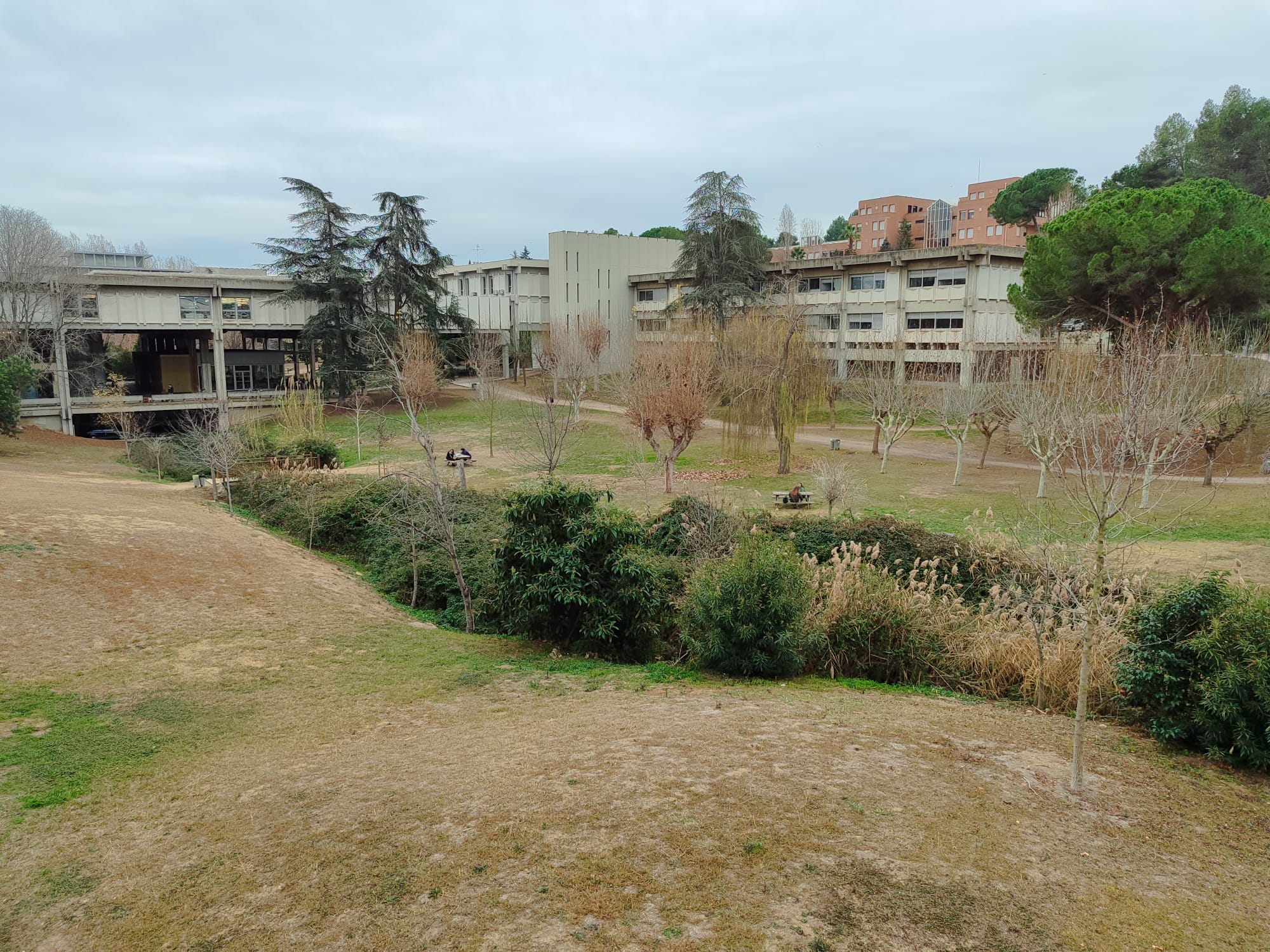The UAB reduces water consumption by 25% thanks to drought savings measures
The UAB has managed to reduce its water usage by 25.1% in 2023 when compared to 2022 thanks to water-saving and efficiency measures implemented in this past year to better cope with the drought. This year, the UAB will increase its efforts to continue implementing measures that reduce the use of water in addition to the restrictions already in place by the Emergency Drought Plan of Catalonia.

The water saving and efficiency actions implemented by the UAB during the year 2023 have made it possible to reduce water consumption by 50,000 m3 during the year 2023, which represents 25.1% less water used than in the year 2022.
The economic savings resulting from the reduction in consumption have made it possible to offset the cost of investments made during 2023 to improve infrastructure and data monitoring.
This year the UAB plans to triple the investment in actions to learn about and reduce network water consumption. In addition, studies will continue to evaluate the reuse of water throughout the campus and to adapt green areas to face new scenarios of restrictions in the use of mains water.
All these measures not only seek to address the current crisis, but also to lay the foundations for a more sustainable future.
The reduction in consumption has been and will continue to be possible thanks to the involvement of all members of the university community, both individually and collectively, to make a rational use of water, making it possible to continue reducing consumption on campus.
Measures adopted by the UAB to adjust to the Drought Plan restrictions
Since 1 February 2024, the Ter-Llobregat system has been in emergency phase 1. In this scenario, restrictions on the use of drinking water are maintained and in some cases increased with respect to previous phases of the Drought Plan, emphasising its use with the minimum indispensable amount.
Currently, since the irrigation of green areas with water from the network is prohibited, the irrigation of campus vegetation has been discontinued. From now on, irrigation is only allowed for the survival of trees if it is done with reclaimed water or groundwater. In the search for new non-potable water resources, the water used to clean the filters of the Physical Activity Service (SAF) swimming pool is being evaluated for this use.
Since March 2023, when the Ter-Llobregat system was in an exceptional situation due to drought, there were already limitations for some uses. With regard to vegetation, only areas equipped with drip irrigation networks were irrigated and tree survival irrigation was maintained with water from the supply network. Overall, 7 hectares were no longer irrigated with sprinkler irrigation, an area equivalent to approximately 78% of the irrigated area of the campus.
Another measure implemented was the closure of the SAF whirlpool bath, and the artificial turf soccer field which was no longer irrigated.
In addition, exterior cleaning with water from the water supply network, such as streets, facades, street furniture and vehicles, was discontinued.
Additional measures implemented by the UAB to reduce mains water usage
During 2024, the UAB will continue to promote water-saving and efficiency measures beyond those imposed by regulations to reduce water use. In particular, the actions will focus on improving the elements of the distribution network (taps, showers and flushers) progressively wherever possible, the installation of new meters that allow greater knowledge of the behaviour of the network and the detection of possible leaks, as well as the implementation of new technologies that are more efficient in the use of water, or the search for ways to save water in teaching and research facilities.
All these measures are intended to give continuity to those already implemented during the year 2023, including the installation of new refrigeration equipment and closed-circuit cavity in laboratories to avoid wasting water from the network, the review and adjustment of the hand-washing buttons in different buildings, and the installation of aerators in the showers of the SAF to reduce the flow of water used in each pulse.
Moreover, the UAB's own telemetry meters were also installed to improve consumption control and leak detection, and the planned planting of nearly 200 new trees was halted.